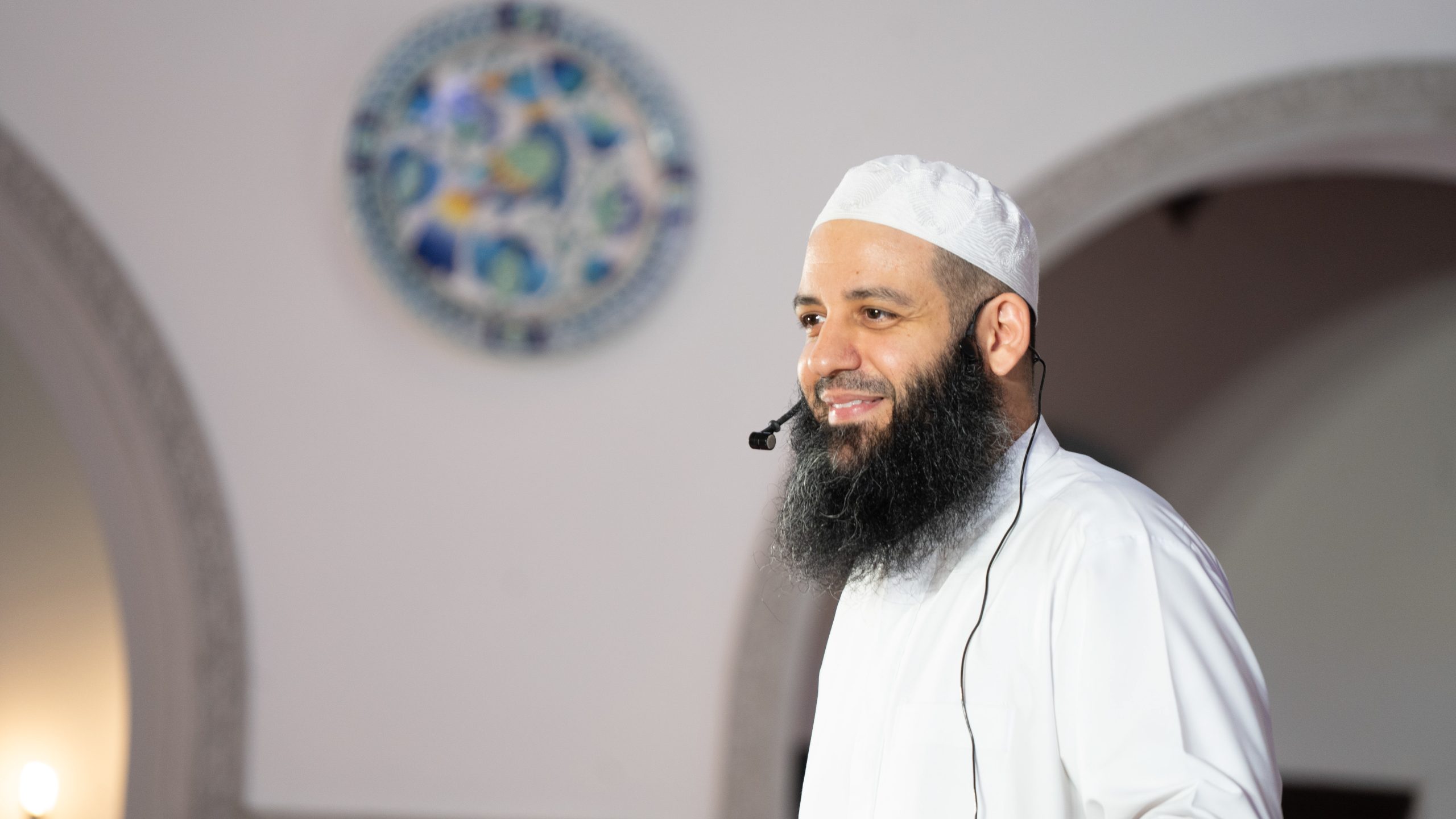Recently, we had the honour of attending a gathering by Shaykh Abu Bakr Zoud. Alhamdulillah, the gathering was filled with invaluable lessons on how to maximise the rewards of Ramadan by following the sunnah of Prophet Muhammad (s.a.w.). From the power of adhkar to the importance of preparing for Ramadan like the Prophet (s.a.w.), here are the key takeaways from the event.
The Power of Adhkar and Dhikr
Shaykh Abu Bakr Zoud emphasised that the most rewarded of those who fast is the one who remembers Allah (s.w.t.) the most. There is also a hadith that highlights that the most pleasing deed you can do is dhikr.
It was narrated from Abu Darda that the Prophet (s.a.w.) said:
“Shall I not tell you of the best of your deeds, the most pleasing to your sovereign, those that raise you most in status, that are better than your gold and silver, or meeting your enemy (in battle) and you strike their necks, and they strike your necks?” They said, “What is that, O Messenger of Allah?” He said, “Remembering Allah (Dhikr).”
(Sunan Ibn Majah 3790)
This shows us that fasting alone isn’t enough. What truly elevates our worship is constant remembrance of Allah (s.w.t.) which is dhikr. The more we engage in dhikr, the greater our rewards will be, in both this life and the afterlife.
Morning and Evening Adhkar: A Shield of Protection
The Prophet Muhammad (s.a.w.) taught us the importance of morning and evening adhkar, which serve as a spiritual shield, protecting us from harm, evil, and corruption.
When is the best time for us to perform adhkar?
- Morning adhkar
After Fajr, preferably after completing the Subuh prayer, until sunrise.
- Evening adhkar
After ‘Asr, ideally before Maghrib, but can be extended until the first third of the night.
The key to effective dhikr is not just reciting with the tongue but engaging the heart and mind. The highest level of dhikr is when you understand and internalise its meaning while saying it.
Prophet Muhammad (s.a.w.) promised that whoever recites the morning and evening adhkar with sincerity will be free from Jahannam, receive Allah’s (s.w.t.) protection, and be among the closest to the Prophet (s.a.w.) in the akhirah.
How the Prophet Muhammad (s.a.w.) Prepared for Ramadan
The Prophet (s.a.w.) was the greatest worshipper of Allah, and his approach to Ramadan is the ultimate guide for us.
- Fasting in Sha’ban
The Prophet (s.a.w.) was known to fast more in Sha’ban than in any other month besides Ramadan. Here’s why:
- The month Sha’ban is when our deeds are raised to Allah (s.w.t.) for the year
- As preparation for Ramadan
- It’s a month of heedlessness, in which the act of worship is highly encouraged
- Confirming the Sighting of the Moon
The Prophet (s.a.w.) never started Ramadan until the moon was visibly sighted. If there was no sighting, he (s.a.w.) completed 30 days of Sha’ban before beginning Ramadan. This teaches us that establishing Ramadan and ‘Eid is a communal effort instead of an individual one. The Prophet (s.a.w.) would make du’a’ upon seeing the new moon, a sunnah we should revive today.
- Welcoming Ramadan with Celebration
A few days before Ramadan, the Prophet (s.a.w.) would gather his companions and congratulate them on the arrival of the blessed month.
Instead of seeing Ramadan as a burden, we should celebrate its arrival and make the most of its multiplied rewards.
The Unique Rewards of Ramadan
- The Gates of Jannah Are Open
The Prophet (s.a.w.) taught that during Ramadan, the gates of Jannah are flung open, and the gates of Jahannam are shut. This is a special mercy from Allah (s.w.t.), giving us a golden opportunity to seek forgiveness for our past sins, renew our connection with Allah (s.w.t.) and increase in obedience and righteousness.
- The Qur’an: The Best Companion in Ramadan
The Prophet (s.a.w.) lived with the Qur’an in Ramadan. He didn’t just read it; instead, he deeply reflected on its meanings and applied its teachings. Ramadan is the month of the Qur’an, and if we want to make the most of it, we should:
- Read the Qur’an daily
- Understand its meaning
- Apply its guidance in our lives
Following the Sunnah for Maximum Rewards
The key takeaway from Shaykh Abu Bakr Zoud’s talk was clear—to maximise the rewards of Ramadan, we must follow the example of the Prophet Muhammad (s.a.w.).
Here are the summarised main points from the talk:
- Remember Allah (s.w.t.) frequently through dhikr
- Prepare for Ramadan as the Prophet (s.a.w.) did
- Welcome the month with excitement and gratitude
- Increase worship, especially in Qur’an recitation
May Allah (s.w.t.) grant us the ability to implement these sunnahs and make this Ramadan the most rewarding one yet. Amin!
We hope that this sharing brings you great benefits and barakah, especially for this Ramadan. Look forward to more sharing posts from us soon!




